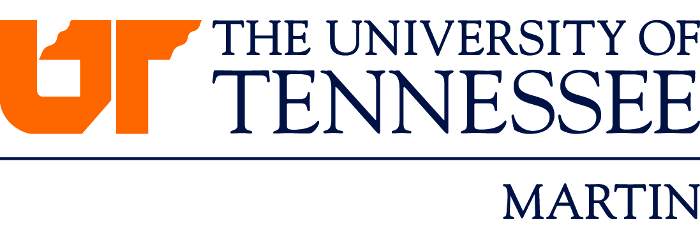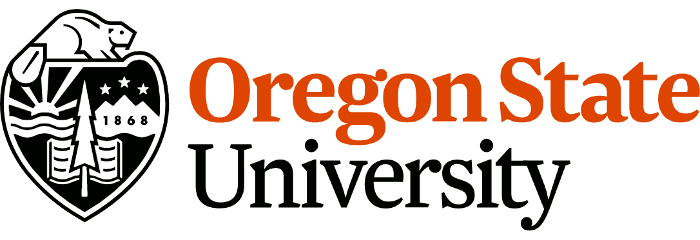Most Popular Online Agriculture Degrees 2025
The most popular online agriculture degree programs offer an industry-focused path to careers in agribusiness, sustainable food systems, and crop and livestock management. Our rankings are based on the number of program graduates.
Key Takeaways:
- The University of Tennessee - Martin ranks #1 overall for the most graduates of its online agricultural business program, reflecting a trusted reputation.
- Utah State University also stands out for its 98% recommendation rate based on student surveys we've collected.
All schools featured are institutionally accredited. Please view our methodology to learn more. Below our list, we interviewed two agriculture experts with PhDs in the field, who offered insights into careers and how to stand out with an online agriculture degree.
Most Popular Online Agriculture Degrees 2025
| Rank | School | Graduates | Annual Tuition | Median Salary | Recommendation |
|---|---|---|---|---|---|
| The University of Tennessee - Martin | 102 | $14,520 | $52,293 | 93% | |
| Oregon State University | 62 | $11,760 | $51,827 | 87% | |
| Colorado State University - Fort Collins | 58 | $14,280 | $55,660 | 88% | |
| North Carolina State University | 40 | $38,853 | $59,154 | 95% | |
| Texas A&M University - Commerce | 31 | $22,626 | $52,593 | 91% | |
| Utah State University | 30 | $11,820 | $58,237 | 99% | |
| University of Minnesota - Online | 14 | $24,512 | $43,710 | N/A | |
| Greenville University | 6 | $14,550 | N/A | 100% | |
| Mayville State University | 3 | $8,145 | N/A | 100% | |
| University of Northwestern Ohio | 2 | $8,400 | N/A | 100% |
Most Popular Online Agriculture Degrees 2025 - Program Details
- Graduates: 102
- Annual Tuition: $14,520
- Median Salary: $52,293
- Recommendation: 93%
Why we like them: Ranked #1 for total graduates of its program, UTM stands out as a leader in producing agricultural business professionals prepared to meet industry demand. This is a strong indicator of both program capacity and popularity. The program's unique strength lies in its robust internship connections, featuring placement opportunities with major industry employers such as Farm Credit Mid-America, Tyson Foods, and ADM.
- Graduates: 62
- Annual Tuition: $11,760
- Median Salary: $51,827
- Recommendation: 87%
Why we like them: OSU’s agricultural sciences program stands out for its customizable degree paths, allowing you to work closely with advisors to match your academic plan to distinct career goals. The program is rooted in over 150 years of agricultural expertise, and it integrates certificates and microcredentials, giving you opportunities to quickly upskill with in-demand knowledge.
- Graduates: 58
- Annual Tuition: $14,280
- Median Salary: $55,660
- Recommendation: 88%
Why we like them: CSU-Fort Collins hosts an online agricultural business program, where students are taught by leading agricultural faculty recognized for their research and industry impact. The degree can be tailored with more than a dozen minors, including options such as Horticulture, Design Thinking, and Seed Science.
- Graduates: 40
- Annual Tuition: $38,853
- Median Salary: $59,154
- Recommendation: 95%
Why we like them: NCSU's online BS in Agricultural Science encourages you to tailor your studies by choosing specialized concentrations in two out of nine agricultural disciplines, such as Agroecology, Feed Mill Management, or Agricultural Environmental Technology. Students are likely to succeed here, with the best graduation rate on our list of 85%.
- Graduates: 31
- Annual Tuition: $22,626
- Median Salary: $52,593
- Recommendation: 91%
Why we like them: TAMUC’s BS in Agribusiness includes opportunities to engage in real-world agricultural challenges, maintain connections with industry employers, and participate in internships that prepare you for immediate career entry. You can choose from a wide array of minors, including Equine Science, Food Studies, and Agricultural Education.
- Graduates: 30
- Annual Tuition: $11,820
- Median Salary: $58,237
- Recommendation: 99%
Why we like them: USU offers an online agribusiness degree that integrates unique coursework such as commodity futures and options trading, as well as agricultural and natural resource law. USU has the highest recommendation rate from students, based on nearly 100 reviews we've collected from this school. Plus, this agribusiness program has the highest salary among graduates on our list, with a median of $50,220.
- Graduates: 14
- Annual Tuition: $24,512
- Median Salary: $43,710
- Recommendation: N/A
Why we like them: UMN accepts all credits from regionally accredited colleges or universities, an uncommon level of transfer friendliness compared to many peers. Additionally, there is no on-campus component, allowing you to complete the full agricultural business degree remotely.
- Graduates: 6
- Annual Tuition: $14,550
- Median Salary: N/A
- Recommendation: 100%
Why we like them: Greenville offers deeply integrated experiential learning through the Experience First program, which allows you to participate in consulting projects for leading agribusiness firms. The curriculum is uniquely applied, with hands-on, market-driven simulations and entrepreneurial lab exercises, ensuring relevance to real-world agricultural business challenges.
- Graduates: 3
- Annual Tuition: $8,145
- Median Salary: N/A
- Recommendation: 100%
Why we like them: An aspect we value about MSU’s BS in Agribusiness is the option to double major concurrently in business administration, which expands your professional scope. Additionally, MSU emphasizes hands-on experience through its dedicated internship program.
- Graduates: 2
- Annual Tuition: $8,400
- Median Salary: N/A
- Recommendation: 100%
Why we like them: A defining feature of UNOH’s program is its immediate immersion into agribusiness coursework, allowing you to engage directly with the major from your first quarter. (Most competing programs reserve these classes for the second year.)
How To Succeed in Agriculture Today: Expert Advice From a Ph.D. Agribusiness Scholar and a High-Tech Farming Leader
Two agriculture experts share what online students should know before choosing the agriculture bachelor’s program that fits their goals — from GIS tools and AI training to purpose-driven career paths and real-world internships.
Why Today’s Ag Careers Start With Tech Skills

Agribusiness Professor
"I didn’t grow up in agriculture, but I chose to study it because I saw its potential to solve some of the world’s most urgent problems. With a Ph.D. in Agribusiness from Purdue, I gained hands-on experience in agricultural economics, food systems, and applied analytics; skills that continue to shape how I teach and coach today.
Over the years, I’ve guided more than 10,000 students in bringing agricultural knowledge to life through entrepreneurship, innovation, and intentional career planning. For today’s graduates, especially those earning degrees online, the key is to pair strong technical skills with a clear sense of purpose.
I chose to study [agriculture] because I saw its potential to solve some of the world’s most urgent problems.
Agricultural employers increasingly value fluency in GIS tools, data modeling, and decision-support software, but they’re also looking for adaptable thinkers who understand food system sustainability, supply chains, and farm-to-market strategies. I recommend focusing on sectors like food innovation, agri-tech, and regenerative agriculture, where demand for practical solutions is growing.
In my upcoming TEDx talk this August, I’ll share how education is evolving and how small, focused actions can unlock careers that feel both meaningful and future-ready.
Whether you're in the field or behind a screen, what you do with your agriculture degree is what matters most."
EXPERT TIP
"To become more competitive, students should pursue certifications in project management or sustainable ag, seek internships with mission-aligned farms or food ventures, and get involved with industry organizations."
Drones, GIS, and AI: What Agriculture Graduates Need to Compete

Agricultural Engineer
What technical skills do you expect new agriculture grads to bring to the job?
"Modern agriculture, particularly in row crop production, is highly mechanized. The geospatial location of agricultural equipment is accurate to within a centimeter, thus allowing the precise application of fertilizers and crop protection chemicals.
Unmanned Aerial Systems (drones) are increasingly used for crop reconnaissance to help identify problem areas in production fields.
Geographic Information Systems (such as ArcGIS and QGIS) allow farmers to construct information layers for fertilizers, herbicides, irrigation water, etc., that are critical for tracking and making crop management decisions.
I believe today’s agriculture graduates need to take coursework that prepares them for the highly technical nature of modern agriculture."
What should agriculture students should pursue alongside their degree to become more competitive?
"I believe agriculture students should look for opportunities to enhance their traditional agriculture degrees with other learning opportunities that provide knowledge in technological areas, such as software coding, building apps, GIS, Artificial Intelligence, etc.
For coding, explore free courses at and .
To build applications, offers top university courses.
For GIS, provides free training.
These resources are excellent starting points!"
What advice would you give to students who want to turn an online agriculture degree into a meaningful career?
"Do as many internships as possible during your college education. These experiences will provide useful context for your courses and build vital interpersonal skills for your professional career development.
I would say there are excellent career opportunities in all... areas. Modern agricultural production is complex, therefore well-educated professionals are needed in every aspect of agriculture."
Overview of Agriculture Bachelor’s Degree
Agriculture is a staple of U.S. infrastructure. Since the creation of the in 1785, agriculture has been a crucial part of North American society. Growing food, caring for livestock, and managing natural resources is critical to the U.S. economy's success.
Online agriculture degrees are potential options for students pursuing careers in food science, food production, or environmental policy. Bachelor’s degrees cover topics from agriculture technology and soil science to agribusiness and communications.
Agricultural degrees online typically take about four years to complete. However, if you already have an associate degree or plan to transfer credits from another program, you may be able to graduate faster. Most colleges and programs require the following:
-
High school or college transcripts, if applicable
-
3.0 GPA minimum
-
Recommendation letters
-
College entrance exam scores
-
A personal essay or statement
You can absolutely get an agriculture degree online. Agriculture degrees focus on management, financing, technology, and policy, in addition to science. Those aspects can be learned just as easily online as in-person, so an online degree in agriculture is no less respected than an in-person degree. Consider what kind of career you’d like, and look for an accredited program that suits your goals.
Before choosing an agriculture degree program online, students should verify that their colleges and universities have received both institutional and programmatic accreditation.
The main accrediting agency for agriculture degrees is the , the agricultural, bioengineering, and environmental branch of the Accreditation Board for Engineering and Technology (). Students attending programs accredited by this agency can feel assured that they are receiving a high-quality education and that they'll be eligible to receive financial aid.
Common Courses for an Agriculture Major
Agriculture is a science-based field, so courses focus on physical, biological, social, and agricultural sciences. Agriculture programs may cover food and soil sciences, agricultural machines and business, and farm management systems.
Livestock Biometrics
This course teaches students how to combine modern technology and traditional farming to best care for cattle and other livestock. Biometrics is the collection and interpretation of biological information, such as temperature, accelerometer data, and GPS tracking. This course prepares students to either farm or assist farmers in improving the care of their livestock.
Microeconomics in Agriculture
Microeconomics deals with supply and demand and how they interact with world markets. In the agricultural sense, it deals with farmland, labor, and other factors of production. This course provides insight into how agricultural businesses work and how students can succeed in the field after graduation.
Agricultural Research and Statistics
This course emphasizes the importance of gathering information on the production and supplies of food and fiber, labor and wages, chemical use, and more. This course shows how organizations, like the (NASS), collect data and reports on production, inventory, finances, and development.
Food and Agricultural Marketing
Investment, policy, and public consumption is such an important part of the agricultural field. Core courses, like this one, focus on marketing and awareness. Agricultural businesses use customer satisfaction and public opinion to influence the market, so understanding the influence of marketing can helps students prepare for a successful career.
Agribusiness Management
Management is an important aspect of any industry. Agribusiness management courses provide experience with economics, business, and agriculture, preparing students to work in both the public and private sectors, or even how to operate a family farm.
Agriculture Concentrations
Because agriculture is such a wide field, there are several possible concentrations. Specializing in agricultural business, food science, horticulture, or botany helps students find the jobs they want once they graduate.
When choosing a school and program, see what concentrations they offer and find a program that fits your career goals.
Curious to explore similar online degrees? For those most interested in science, check out the best online environmental science degree, nutrition degrees, and biology degrees.
What Can You Do With an Agriculture Degree?
Agriculture is a crucial part of U.S. infrastructure, so jobs can be competitive in this field. Based in science and experience, the agricultural industry works closely with local and national governments to make policy, regulate costs, and protect the environment.
No matter your interest in agriculture, there is likely a career that will fit your interests. Check out some of the possible career options for bachelor's graduates with an online agriculture degree:
Agricultural Engineers
work with local councils, farmers, and developers to draft proposals, create working drawings, and understand budgets. They advise on water quality and resource management, as well as ways to improve processes.
Farmer, Rancher, and Other Agricultural Managers
work directly with livestock and crops. They focus on production and resource management. Their daily tasks include coordinating and managing operations, which may involve recruiting, training, or supervising employees. Their place of employment depends on the specific industry, but it could mean working outside or indoors.
Soil and Plant Scientists
perform research and communicate with other professionals to develop conservation and management methods. They provide information and recommendations to farmers, landowners, and policy managers to conduct experiments and develop new or improved varieties of crops that can withstand hazardous conditions, such as disease and weather.
Agricultural and Food Scientists
analyze nutrition, discover new food sources, and conduct research into processed foods and packaging. They may work with nanotechnology, preservation development, and food distributors. Some agricultural and food scientists work with the government to create policies that improve waste management, food processing, and safety regulations.
Conservation Scientists and Foresters
help firefighters and other forest workers determine a fire’s impact on their region, and they also develop ways to suppress fire and safely perform controlled burns. They evaluate data on forest and soil quality to help preserve the environment. They may also plant seedlings and help restore land.
Is An Agriculture Degree Worth It?
There are many reasons to pursue an online degree in agriculture, but it’s always important to consider pros and cons when choosing a degree program and career path. Researching the job market, specializations, and long-term viability is an important part of the application process.
Potential Pros
-
There are a variety of specializations to choose from. From mechanics and scientists to policymakers, there are many varied careers within the field of agriculture. Many programs offer specialized degrees or concentrations within a broader degree that prepares graduates for successful careers.
-
Those who work in this field report a high level of job satisfaction. For example, farm managers rank their satisfaction an average of 3.7 out of 5 stars. This puts them in the top 21% of all U.S. careers. Range managers and aquacultural managers boost similarly high numbers.
-
Contributing to environmental management is a worthwhile pursuit. Agriculture relies on nature, so conservation and resource management is a large part of the field, no matter the specific industry you work in. If you’re interested in protecting the environment and creating sustainable resources, an agricultural degree may be a suitable fit.
Potential Cons
-
Employment locations are limited. While there are corporate offices and research facilities in the eastern U.S., the Bureau of Labor Statistics () reports that most agriculture-related jobs are located in the southern and southwestern parts of the nation. There may not be as much flexibility in terms of location for careers in agriculture.
-
Not all careers in the field require a bachelor's degree if you don't mind starting at entry-level positions. According tothe BLS, do not require a bachelor's. Instead, they rely on in-person experience. Consider the specific career you’re interested in before applying to a bachelor’s program.
-
The risk of injury or illness may be higher among these professions. In fact, the BLS reports that agricultural careers carry a higher risk of injuries and illness than other careers. Since the work can be labor intensive, involve heavy machinery and live animals, and use chemicals, agricultural workers are more likely to get hurt or sick. , specifically, have one of the highest rates of injury and illness.
FAQs About an Online Degree in Agriculture
Which Degree Is Best for Agriculture?
A bachelor's degree in agriculture prepares students for a wide range of careers in local food and green businesses, urban agriculture, permaculture, herbal medicine, and related jobs in farm-based education, public policy, and community development and advocacy. For example, agricultural and food scientists need at least a bachelor's degree from an accredited institution, but many also hold graduate degrees.
What to Major in if You Want To Be a Farmer?
Most farmers , but they may also pursue a degree in business or natural resources. Majors like animal sciences, plant science, and agricultural economics also teach skills necessary to find a career in agriculture. Speak with an academic advisor to see which major is right for your goals.
Is Agriculture Hard To Study?
The answer depends on your specialization and how much work you put into the agriculture program. Any degree and career field can be hard, but you can learn the necessary skills to succeed in the field. By doing classwork, speaking with professors and other students, and doing outside reading, agriculture doesn’t have to be hard to study.
Student Reviews of Online Agriculture Programs
I would not recommend this program. The main thing that I learned through my time here is that there are a lot of programs that schools offer that aren't necessary. In my field I truly feel that my degree is a disadvantage, and has prevented me from getting jobs. Texas Tech has a large presence in a small region. I live outside that region and everyone that I have ever interviewed with thought that Texas Tech was a 2 year technical school. This was a tremendous waste of time and money and I would... Read More
Review Date: 3/28/2019
Would Recommend: No
Helpful for Career: No
I have found the classes to be great. Most professors are quick to respond and I feel I have learned quite a bit in the last year. I would have to agree with a previous comment on the student advisors. They are not helpful at all. All they do is check in on you to make sure you are staying active. If you ask them for any real help, they just tell you they can't help. On top of that, they continually push back the estimated graduation date. My graduation date was scheduled for the end of December... Read More
Review Date: 5/3/2015
Would Recommend: No
Helpful for Career: No
I would highly recommend this school for anyone working professionals looking to expand their knowledge or high school graduates. The instructors are topnotch and will go out of their way to help you succeed. If you are looking for a school to get your bachelors or master give SNHU a try you'll be glad you did.
Review Date: 5/5/2015
Would Recommend: Yes
Helpful for Career: No
This school is a JOKE. Its just a community college and they charge university prices. I've about had it with all professors anymore. They are all less interested in teaching and more interested in some ridiculous schedule they want you to conform to that they just made up. Or they continually change it. Iv'e payed good money to attend these courses and i have to kill my self just to get there and for them to just not show up is so unprofessional. Its not a university its a damn COMMUNITY college... Read More
Review Date: 5/12/2015
Would Recommend: No
Helpful for Career: No
Montana State University- Bozeman was always the college that I had hoped to attend and a decision that I am still completely thrilled that I have made. I first received my undergraduate degree from MSU in 2016 in agricultural education. Due to the fact that I was very pleased with the education that I obtained, I then made the decision to continue my education to pursue my graduate degree also in agricultural education. Through attending Montana State University I have been able to acquire a teaching... Read More
Review Date: 3/30/2018
Would Recommend: Yes
Helpful for Career: No
I did a non-traditional path Felician taking classes at my local community college and online. For the most part I found the material engaging but not too difficult. I found most of my professors to be very responsive, and only had a few minor issues with the timeliness of returned grades but this has nothing to do with the schools, just different personality types. Not being catholic myself I was worried about my religion class but I did very well and found it to be interesting, but the book itself... Read More
Review Date: 5/8/2015
Would Recommend: Yes
Helpful for Career: Yes
Awesome college, education and atmosphere. I would recommend to anyone, especially someone with agricultural interest.
Review Date: 5/31/2016
Would Recommend: Yes
Helpful for Career: Yes
I love Virginia Tech. It is so diverse and everyone feels accepted and at home. In my degree program, Agricultural Sciences, as a future agricultural educator, I don't believe Virginia Tech is the best place to go. Most colleges have a major specifically for agricultural education/future educators, but Virginia Tech doesn't. This program touches mostly on leadership, but misses core subjects about how to be a good educator. I love this campus and community, don't get me wrong. But if you are thinking... Read More
Review Date: 8/23/2019
Would Recommend: Yes
Helpful for Career: No
Ferrum provided me with the opportunity to grow and thrive in college. During my four years at Ferrum I grew as a person, student, leader, and friend. I wouldn't trade my time at Ferrum for anything, I will forever be thankful for the educators who took time to know me individually and contributed to my successes both at Ferrum and in life.
Review Date: 12/26/2019
Would Recommend: Yes
Helpful for Career: Yes
WE ARE....PENN STATE! This is the best school in whole world! All of the professors are so caring and knowledgeable; they really want to see their students succeed. Campus is beautiful and there is always something to do whether it's visit the Berkey Creamery or hang out in down town State College. The College of Agricultural Sciences offers MANY opportunities to interested students, there really is something for everyone!
Review Date: 12/16/2014
Would Recommend: Yes
Helpful for Career: No
The Sustainable Agriculture and Food Systems major at the University of New Hampshire is unlike anything else. I was so inspired by all the incredible professors that dedicated their heart and soul into their students and the program. I felt that I had the opportunity to explore a degree that was catered to my own interest, and I focused my studies on Community Development in Food Systems Work. I was able to examine theories of economic and racial justice in the food system, study community planning,... Read More
Review Date: 4/29/2019
Would Recommend: Yes
Helpful for Career: Yes
Don't assume that you need a science major to get into medical school, which is at times a mistake. Instead of struggling with all the unnecessary science classes, maybe focus on an major or interest and just complete the pre-requisites done for medical, dental or pharmacy school. Trust me. You'll appreciate it! The work load will be easier!
Review Date: 8/23/2017
Would Recommend: Yes
Helpful for Career: Yes
The agricultural journalism at Mizzou is absolutely unmatched by other programs I looked at when applying to colleges. Because of the rigorous coursework through the journalism school (which is currently ranked #1 for journalism programs in the U.S.) and the extensive opportunities available through the College of Agriculture, there is no better place to study agricultural communications. You will graduate 100% prepared for an entry-level job in related fields with this degree.
Review Date: 4/1/2017
Would Recommend: Yes
Helpful for Career: Yes
California Polytechnic State University is known for its "Learn by Doing" motto. The observance of this motto all across campus prepared me to be a productive and knowledgeable professional. The networking opportunities are the best because you're required to have an internship in your field of interest before graduating.
Review Date: 3/24/2017
Would Recommend: Yes
Helpful for Career: Yes
BYU is a beautiful, stretching campus, especially in the springtime. The library is impressive and an excellent resource. I found other resources on campus to be helpful throughout my undergraduate education as well: the Career and Counseling centers, Women's services and resources, the Writing Center, and college advisement centers. I loved many of my professors and found them to be great teachers and experts in their fields. I felt very lucky to learn from them, and I believe BYU employs excellent,... Read More
Review Date: 5/9/2015
Would Recommend: Yes
Helpful for Career: Yes
Excellent school, excellent city, excellent parties and sports. You can travel anywhere in the country and there are people that know and support Madison. Huge network of Alumni
Review Date: 8/4/2015
Would Recommend: Yes
Helpful for Career: Yes
Overall it's a pretty great place. My only gripe is repeat course material.
Review Date: 10/26/2015
Would Recommend: Yes
Helpful for Career: Yes
Excellent school, excellent city, excellent parties and sports. You can travel anywhere in the country and there are people that know and support Madison. Huge network of Alumni
Review Date: 8/4/2015
Would Recommend: Yes
Helpful for Career: Yes
I was very unhappy with my experience at NDSU. Most of the professors would not help out and the school was not helpful towards the students that transferred into the school.
Review Date: 9/1/2015
Would Recommend: No
Helpful for Career: No
I thoroughly enjoyed my time as a student at the University of Illinois Urbana-Champaign. It was a transformational experience that allowed me to pursue not only a rigorous academic environment, but an engaging, humanistic one too. Studying in the College of Agriculture, Consumer, and Environmental Studies was the best option for me. I loved the people across the college from administration, professors, and fellow students. What we study is relevant, targeted, and research-based. Furthermore, it... Read More
Review Date: 8/27/2019
Would Recommend: Yes
Helpful for Career: Yes












